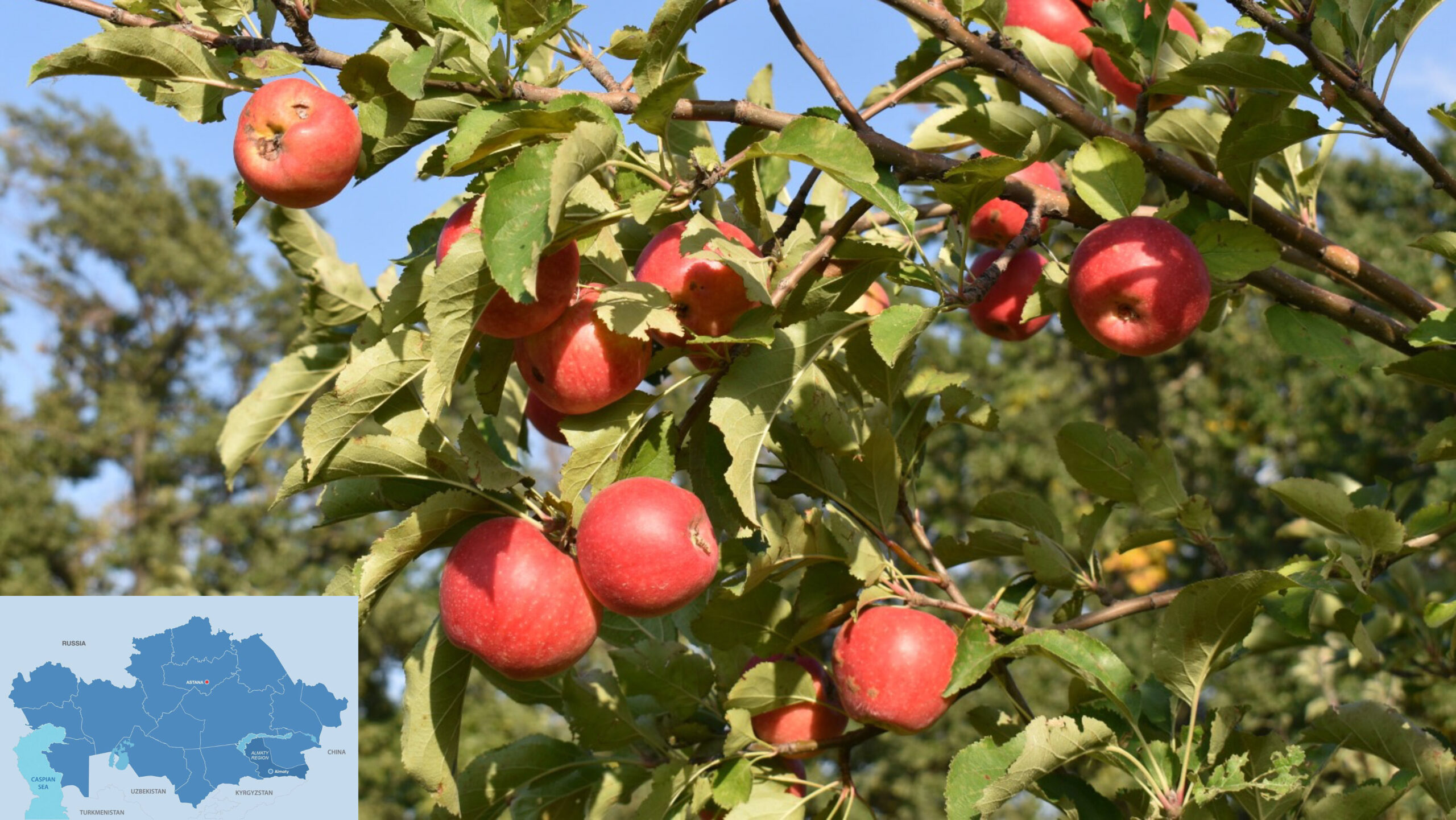ASTANA — The Kazakh government has unveiled a program to revive the legendary Aport apple, aiming to cultivate the unique variety from 2024 to 2028. The initiative, led by the Ministry of Agriculture, seeks to boost production and export.

Kazakh Government Unveils Program to Revive Legendary Aport Apple. Photo credit: primeminister.kz Click to see the map in full size. The map is designed by The Astana Times.
The distinctiveness of the Aport apple variety lies in its sour-sweet flavor, aroma and juiciness. Hailing from the Almaty mountains, this agricultural wonder has become a source of national pride and a key element in Kazakhstan’s efforts to build a globally recognized brand.
According to the Prime Minister’s press service, Aport apples are notoriously delicate and require specific growing conditions. They thrive only in gardens 850 to 1,250 meters above sea level, a rarity in the foothills of Almaty and the surrounding region.
Unlike other apple varieties, Aport apples take eight to nine years to bear fruit, compared to the four to six years typical for different trees. Despite that, Aport remains highly admired in Kazakhstan and abroad due to its exceptional quality and flavor.
Despite efforts to secure international recognition for Aport apples, fruit farming in Almaty faces challenges from urbanization, bureaucracy and a commercial approach to cultivation. However, innovations have enabled experts to revive the legendary flavor and create favorable conditions for the growth of the Kazakh brand.
Five-year revival plan
The revival program spans from 2024 to 2028, with the Ministry of Agriculture, National Agrarian Scientific and Educational Center and the Kazakh Research Institute of Fruit and Vegetable Growing (KazNII) providing scientific and technical support. Private investors and specialized nurseries will also contribute to the program’s implementation.
The first stage of the program, set for this year, involves harvesting Sievers apple tree seeds and developing national standards for cultivating the Aport variety. In 2025, seedlings will be planted at the Talgar regional branch of the KazNII. This will lay the foundation for a mother-cuttings garden on 10 hectares, from which seedlings will be distributed to private farms.
By 2027, the program aims to produce enough seedlings to establish Aport orchards across 100 hectares, which will pave the way for large-scale commercial production, with plans to expand the cultivation of Aport apples in private gardens throughout Kazakhstan.
Scientific progress and government support
Sagi Soltanbekov, a representative of the Talgar regional branch of KazNII, highlighted that there is a solid historical and breeding foundation for the Aport’s revival.
“Since 2011, scientists at KazNII have been working on reviving the Aport variety. To date, over 1,000 species of Sievers apple trees have been analyzed, with 11 selected for breeding the blood-red Aport variety,” said Soltanbekov.
Soltanbekov noted that in 2015, seedlings of the improved Aport were planted on a five-hectare site, and by 2023, the experimental orchard began to yield fruits weighing from 300 to 500 grams. This year, the orchard produced six tons of blood-red Aport apples.
The program’s draft has been approved by Deputy Prime Minister Serik Zhumangarin, who emphasized the importance of promoting the Aport as Kazakhstan’s unique product. He also instructed agricultural universities to involve their students in the program.
